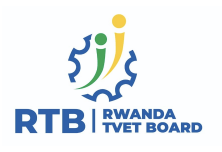Who We Are



Minimize skills gaps experienced by private business operators
The Rwanda TVET Board (RTB) mission is to promote quality education in technical and vocation education and training from level one (1) to five (5) aimed at fast tracking socio-economic development of the country. RTB also has the responsibility to coordinate the implementation of short-term trainings, and this includes the Skills Development Fund (SDF).
The Skills Development Fund (SDF) was launched in 2017 with the goal of building the capacity of Rwandan youth who demonstrate a skills gap or mismatch compared to labor market requirements. The initial financing of the SDF successfully met its targets, as it was originally planned to train 9,000 beneficiaries. In total, 9,100 individuals were trained and certified.
The Skills Development Fund Additional Financing was launched in September 2020 with a target of 13900 graduates. To achieve this goal, a total of 14,196 beneficiaries were trained and certified. Over a period of six years, the program reached 23,296 beneficiaries in total. The impact of the Skills Development Fund on the livelihoods of these beneficiaries is measured through the outcomes of the graduates' Tracer Studies, which assess their employment status within six months after completing their training. The average results from the last three tracer studies indicate that at least 84% of the graduates found employment. This demonstrates the positive impact of the Skills Development Fund on youth employment and empowerment.
Building on the experience of the above two previous phases, a new SDF phase (2024-2029) also implemented by the Rwanda TVET Board (RTB) was launched in September 2024. It is designed to expand access to quality, market-relevant training opportunities, with a particular focus on selected economic sectors that are critical to Rwanda’s socio-economic development. The SDF will stimulate competition and delivery of innovative training programs, promote collaboration between enterprises and training centres, increase skills acquisition among unemployed youth and workers in the private sector, and improve the overall efficiency of training provision.
The SDF continues to operate as a challenge fund, providing matching grants to eligible institutions. Applications are evaluated based on their relevance to the further development of the Rwandan private sector and their potential to create employment opportunities for youth entering the labour market.
SDF Objectives
The main objectives of SDF include:
- Stimulating competition and delivery of innovative training programs.
- Promoting partnerships between enterprises and training centres or schools.
- Enhancing skills among unemployed youth and workers in the private sector.
- Improving the efficiency and quality of training provision in Rwanda.
SDF targets several key groups:
- Employees (current or prospective) of companies and investors needing upskilling.
- Owners of micro and small enterprises, including small-scale farmers, and their employees.
- Individuals with skills acquired through informal or non-formal means (Recognition of Prior Learning - RPL).
- TVET and higher education graduates needing additional practical, labour market-relevant skills.
- Out-of-school youth not engaged in employment, education, or training.
SDF Interventions and Priority Sectors
The SDF will support short-term, practical, and technical training designed to build skills that directly respond to labour market demands. The duration of training will typically range from a few days up to six months, with some flexibility for rare skills that require longer training periods. The programme will primarily fund the development and delivery costs of supported training activities.
SDF interventions are structured under four funding windows:
- Rapid Response Window – Employer-led training addressing specific, immediate skills needs.
- Out-of-School Youth Window – Provision of market-relevant skills to youth under the NEET category
- Informal Sector Skills Upgrading and RPL Window – upgrading of skills for micro-enterprise owners, employees, and those seeking formal recognition of informal skills, and
- Short-term Training for Middle-Level Skills in the Construction Sector Window.
SDF prioritizes the following economic sectors:
- Transport and Logistics
- Energy
- Manufacturing
- Hospitality and Tourism
- ICT (including Internet of Things, software development, digital skills, programming, e-learning, …)
- Agriculture
- Mining
- Construction
- Other sectors demonstrating rare or high-demand skills
The selection of these sectors was based on their potential to generate employment, support value addition, attract investment, and contribute to national productivity and digital transformation.
Implementation and Strategic Alignment
SDF is implemented in line with the National Skills Development and Employment Promotion Strategy (NSDEPS) under Pillar 1: Skills Development, with strategic guidance from the Chief Skills Office in the Ministry of Public Service and Labour (MIFOTRA). RTB reserves the right to prioritize sectors for each call for proposals based on available data on employment opportunities and labour market demand.
While the focus is on the identified priority sectors, applications from other sectors can be supported if they present strong, evidence-based justifications regarding their potential to create decent employment.
The results framework of SDF is tied to clear disbursement-linked indicators, with rigorous verification protocols to ensure transparency and accountability throughout the four-year implementation period.

